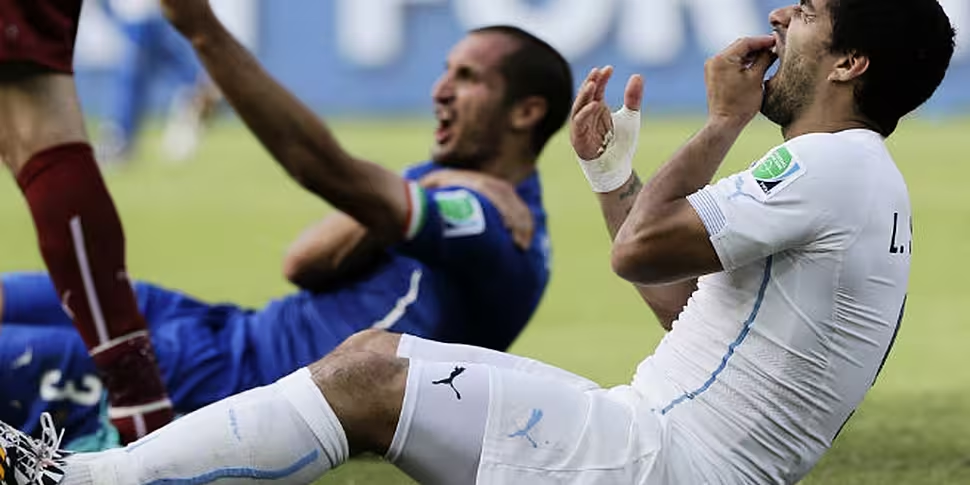Uruguay coach Oscar Tabarez has claimed pressure from the English speaking media influenced FIFA’s decision to ban the striker for a biting.
In a 10 minute speech, which he read out during yesterday’s press conference ahead of today’s second round tie between Uruguay and Brazil, Tabarez announced he was resigning from FIFA’s Technical Study Group in protest at the ban. Suarez was banned from all football related activity – meaning he cannot train or even enter stadiums – for four months, as well as a 9 game ban from international football, for biting Italy’s Giorgio Chiellini during the final group game.
Tabarez felt the “English speaking” journalists had put pressure on FIFA and blown the incident out of proportion.
“We never imagined the severity of the punishment meted out. In a decision which, obviously, is much more focused on the opinions of the media - the media who immediately drew their conclusions at the game. There were journalists who concentrated solely on that topic at the post-match press conference. I don't know what their nationality was, but they all spoke English,” Tabarez said.
Tabarez refused to answer questions after he finished reading his statement and then received a round of applause from the Uruguayan journalists as he departed.
“With that media pressure, we were some way from the data shown by these video images at the match. When I speak of the media attack, the topic they concentrated on was the history of Luis because of things that happened in the past. He was sanctioned, he complied with these sanctions, in the past. Despite these harassments that continued. We all know where power lies. The power is in the hands of the organisers. But I will not discuss that,” Tabarez said.
Tabarez claimed Suarez is a scapegoat in this incident.
“We agree with the principle, but there is a danger proceeding this way. We forget the scapegoat is a person who has rights. In this specific case, of Luis Suarez, besides the mistakes he might have committed, he's made significant contributions to football on the pitch, the essence of World Cups. They depend upon the contributions by such great players,” Tabarez said.
“That doesn't mean we should accept it and agree with the discriminatory nature of that power. I have been a teacher in my life and I present the theory of the scapegoat: you know about the psychology of it all. When giving a punishment to someone who commits a transgression - not a crime - so that the whole group will know what is good, what is bad, what is wrong, what is correct, what ought to be done, and what shouldn't."









